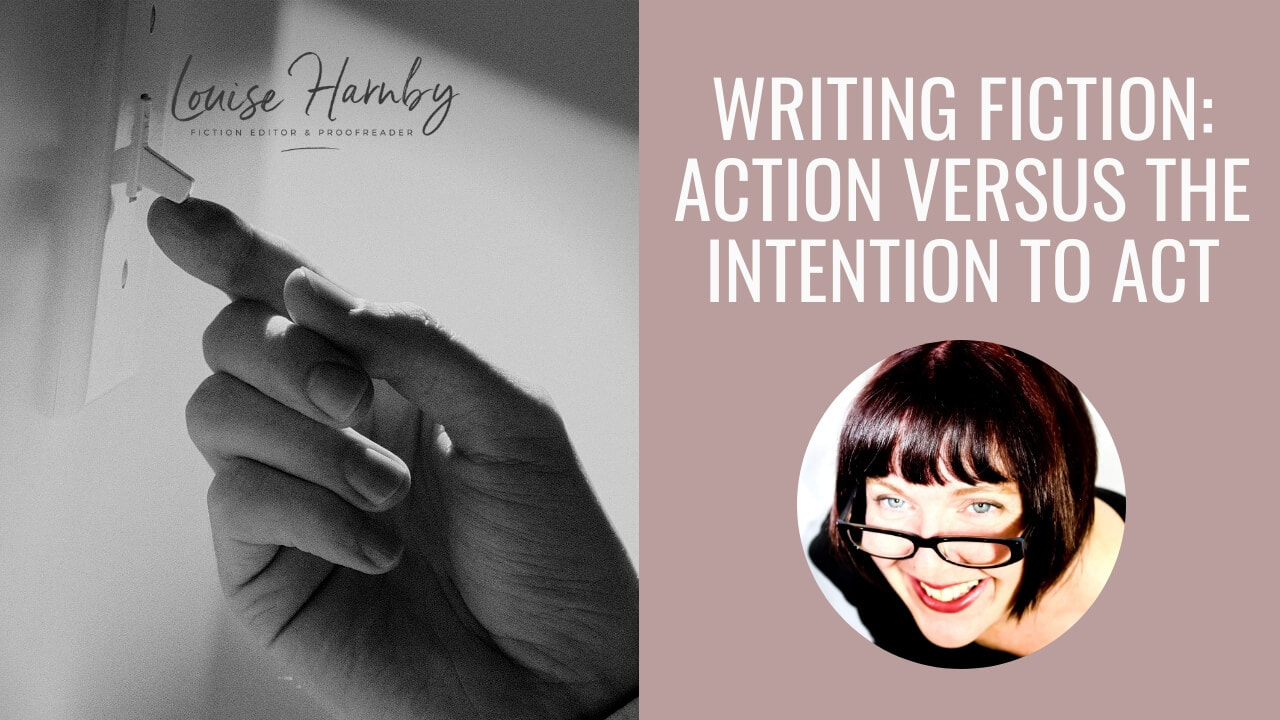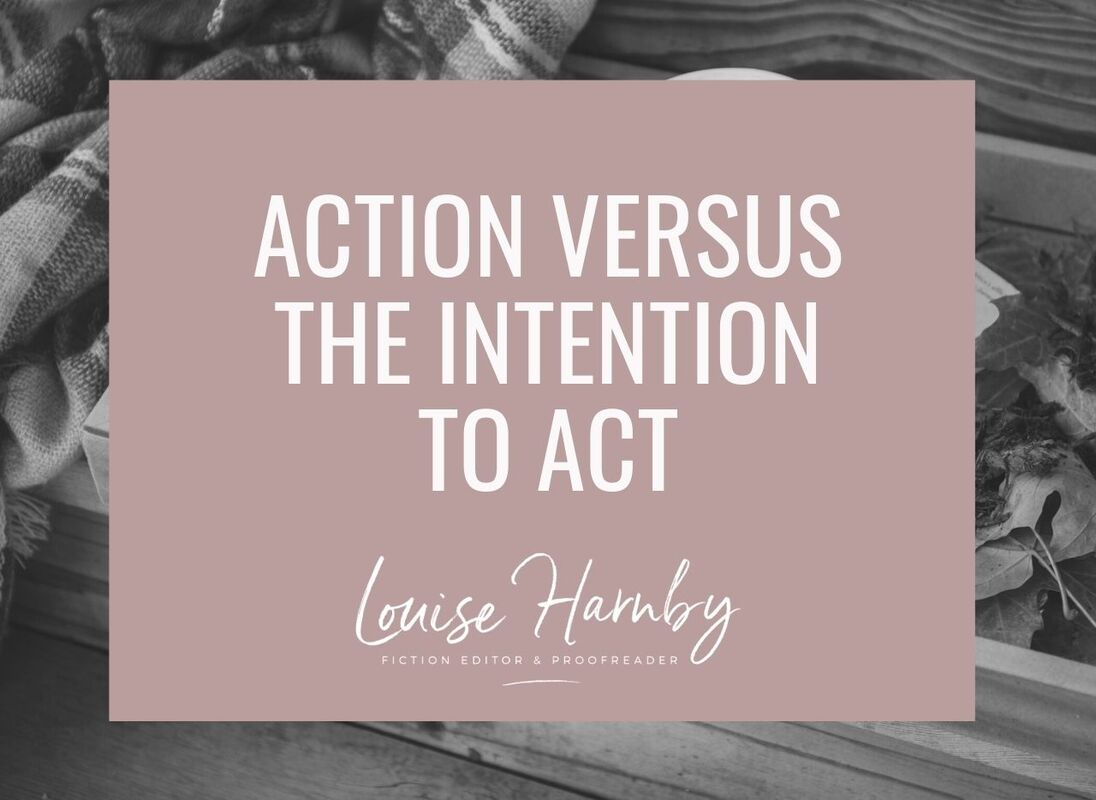|
If your characters’ intention to act is trumping their action, a small recast could be in order. This article shows you how ‘to’ can affect immediacy and plausibility in certain circumstances.
The intention to act
Take a look at these sentences:
What’s noticeable in these examples is that the character does X in order to achieve Y. Let’s be clear – there’s nothing wrong with any of the sentences in terms of either grammar or syntax. A proofreader wouldn’t touch them. A line editor, however, would take a closer look. In all three cases the narrator is describing the intention to act, rather than the act itself. And that can be problematic for a couple of reasons.
Removing ‘to’
Now look at what happens when we remove the ‘to’, introduce a conjunction and tweak the conjugation.
In (1), now we’re moving through the story with Jan. She acts and we go with her. We feel closer to her, as if we are her. In the unedited example, she discovers the empty attic and yet the light never got switched on – all we had was her intention to do it. The ‘and’ fixes that problem. In (2), Andrew picked up a phone and made a call. We’re doing those things with him. And Carla can now answer on the third ring because Andrew made a call, rather than just picking up the phone with the intention of getting in touch with her. In (3), readers are focused on my journey to the caravan, not the reason why I get out of the car (to walk over to the caravan). And now that I do walking rather than just car-exiting, I can get to that caravan and peek through the window.
Shown prose versus told prose – which to choose
This problematic use of infinitives can be framed in terms of showing and telling. There’s room for both in any story, but, as always, context is everything. Here are three points to bear in mind when deciding whether to ditch your ‘to’ and recast.
Conjunctions aren’t the only option. There are other ways of fixing told motivation-based prose where action is what the author really wants to convey. Let’s revisit one of our earlier examples. Each recast has a slightly different mood, but the ‘to’ has been ditched.
Red flags – words and phrases to watch out for
What we mustn’t do is hunt out every example of an infinitive verb form and hit the DELETE button. That would be catastrophic. Instead, during the revision process, check what the following words and phrases are doing to your prose.
Are they showing motivation or impending action? Is that what you want? And will the logic hold up?
‘To’ and viewpoint drops
Infinitives can also interfere with point of view. In this case, it’s not immediacy at stake but what it’s possible for the viewpoint character to know. Take a look at these examples:
In (1), I’m the viewpoint character. All is well until I meet the dog. It bares its teeth. We’re still good. But then the infinitive slips in, and with it I’m now privy to the dog’s intention – to bite. It’s a step too far. Perhaps the dog’s been trained to snarl. Maybe it’s more a warning than an impending attack. The scene could demand I get bitten or escape intact. Either way, what matters is that we’re not in the dog’s head so we can’t know its intention. A recast that shows what happens, rather than telling what might, is in order.
In (2), Denise is the viewpoint character. We have access to her thoughts via the free indirect discourse: The guy was a pain ... That Matty grabbed the side of the boat is fine. In fact, it’s a solid example of shown prose because although we don’t have access to his intentions or motivations (because we’re not in his head) we can make a good guess at what they are from his observable action – grabbing the side of the boat. The infinitive tells us why he grabbed the side of the boat. And that’s a problem because we can’t know; we’re not in his head. All we can do is see through Denise’s eyes. Yes, it’s likely that he’s steadying himself, but why not let the reader do the work? His actions are enough to show them. A recast might go like this:
Or this more staccato version:
When intention is the intention! There are times when the infinitive form of a verb is a good choice because intention, purpose or desire is exactly what the author wants to convey, not the action itself. Here’s an excerpt from Nuala Ellwood’s Day of the Accident (Penguin, 2019, p. 94). The viewpoint character intends to talk but the action never happens. We’re supposed to focus on the intention, so the infinitives – to speak, to defend myself – work. Here are some additional (made-up) examples of where motivation is the order of the day. The character does X for the purpose of achieving Y, and the infinitive is effective.
Summing up If you want your characters to act, show those actions in your prose rather than telling readers about intention. Replace the infinitives with a conjunction and modify how the verb’s conjugated. Or, for a more staccato feel, try commas, or closing the sentence with a full point and starting a new one. If it’s motivation you want, a ‘to’ plus a verb has the right to stand.
Louise Harnby is a line editor, copyeditor and proofreader who specializes in working with crime, mystery, suspense and thriller writers.
She is an Advanced Professional Member of the Chartered Institute of Editing and Proofreading (CIEP), a member of ACES, a Partner Member of The Alliance of Independent Authors (ALLi), and co-hosts The Editing Podcast. Visit her business website at Louise Harnby | Fiction Editor & Proofreader, say hello on Twitter at @LouiseHarnby, connect via Facebook and LinkedIn, and check out her books and courses.
14 Comments
20/1/2020 09:38:26 am
Excellent article, the slight shift makes all the difference in immediacy.
Reply
Louise Harnby
20/1/2020 01:48:09 pm
Thanks so much. Glad you enjoyed it. Amazing what a difference one little word can make!
Reply
20/1/2020 11:25:22 pm
This is a terrific post. It really is the little things that make a big difference. I will be posting the link on my blog. Thanks for this one.
Reply
Louise Harnby
21/1/2020 11:17:20 am
Cheers, Rosi! You're right - sometimes it is the smallest, least invasive changes that can make writing pop!
Reply
21/1/2020 07:09:29 am
Great post, Louise! The little things we never consider make such a difference. Thank you!
Reply
Louise Harnby
21/1/2020 11:16:23 am
Thanks, Felicia! A small change but it does make a big difference!
Reply
Maria D'Marco
21/1/2020 07:56:13 pm
Thank you, Louise! This post covers the number 1 issue I encounter in editing! Will be such an insightful guidance tool when discussing intent and action to my clients.
Reply
Louise Harnby
22/1/2020 04:08:15 pm
Consider it done for Season 4, Maria! Thank you!
Reply
22/1/2020 12:10:18 pm
Thank you Louise. I am editing my first fiction book and thought I needed to explain these points to the author (another first-timer!). You've confirmed my instincts and given me a way to express them! All the best
Reply
Louise Harnby
22/1/2020 04:08:37 pm
Glad it helped, Rebecca!
Reply
6/2/2020 02:00:04 pm
Very useful and timely for me, as I edit my second draft. Thank you!
Reply
Louise Harnby
6/2/2020 07:51:57 pm
Glad to hear it, Steve!
Reply
Dear Ms. Harnby,
Reply
Louise Harnby
24/2/2020 06:04:51 pm
So glad you're finding the blog useful!
Reply
Leave a Reply. |
BLOG ALERTSIf you'd like me to email you when a new blog post is available, sign up for blog alerts!
TESTIMONIALSDare Rogers'Louise uses her expertise to hone a story until it's razor sharp, while still allowing the author’s voice to remain dominant.'Jeff Carson'I wholeheartedly recommend her services ... Just don’t hire her when I need her.'J B Turner'Sincere thanks for a beautiful and elegant piece of work. First class.'Ayshe Gemedzhy'What makes her stand out and shine is her ability to immerse herself in your story.'Salt Publishing'A million thanks – your mark-up is perfect, as always.'CATEGORIES
All
ARCHIVES
July 2024
|
|
|
|






















 RSS Feed
RSS Feed





